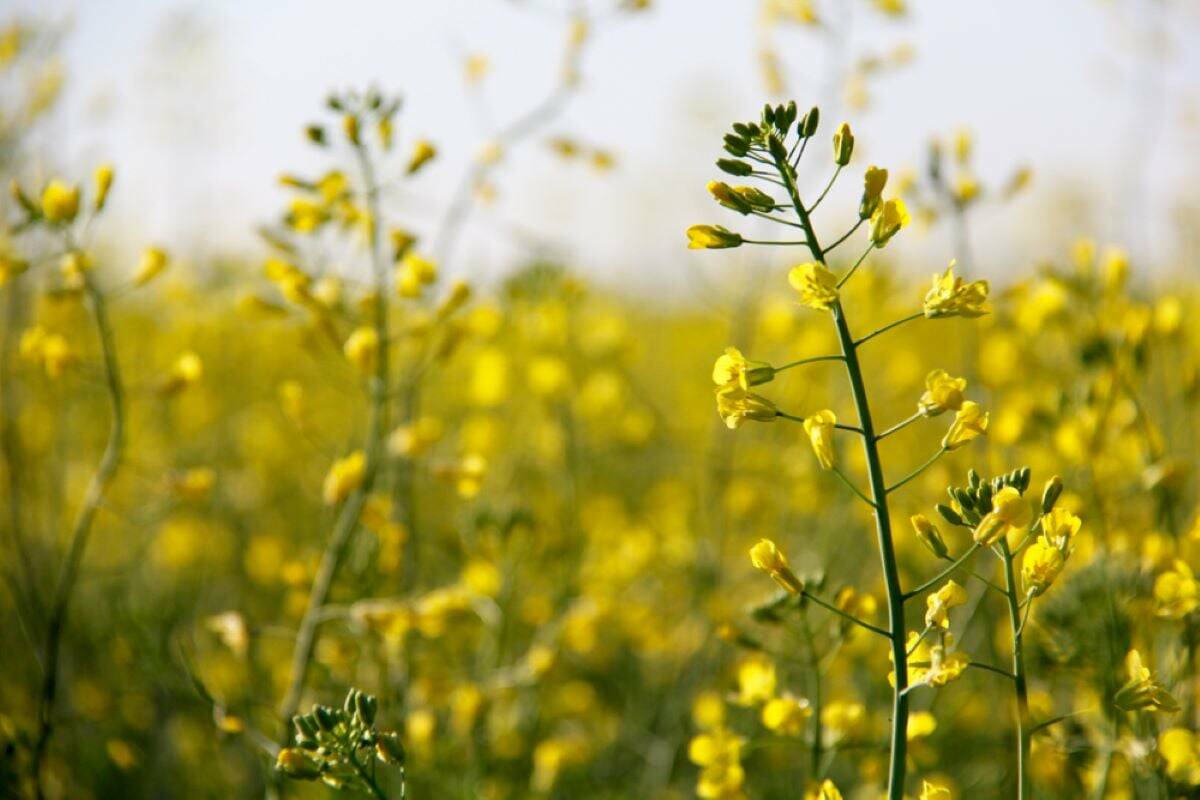Seed giant Pioneer Hi-Bred will begin using LibertyLink herbicide tolerance traits in its canola hybrids, in a deal which will see Bayer CropScience try its hand at juncea oilseeds.
Germany’s Bayer and DuPont-owned, U.S.-based Pioneer on Monday announced a global licensing agreement in which Bayer will license its LibertyLink technology to Pioneer, while Bayer will get access to some of Pioneer’s juncea genetics.
“As a result of the agreement, growers will have a broader choice of LibertyLink canola hybrids and the option to use the successful Bayer herbicide, Liberty, in their weed management program,” Joachim Schneider, head of Bayer CropScience’s BioScience business unit, said in a release.
Read Also

ICE weekly: China, soy complex lift canola prices
China’s upcoming lifting of tariffs and rising soyoil prices lifted Canadian canola values for the week ended Feb. 4, 2026.
“In addition to expanding the Pioneer brand canola lineup for our customers, the addition of Liberty herbicide tolerance will contribute to sustainable crop protection by rotating herbicides with different modes of action,” Ian Grant, Pioneer business director for Canada, said in the same release.
Financial terms of the deal weren’t disclosed.
Compared to canola, which is seeded on about 24 million acres annually, mainly in Canada, the U.S. and Australia, juncea is grown on about 17 million acres, mainly in India.
Juncea, also known as mustard greens or Indian mustard, is another member of the brassica genus that also includes crops such as canola and broccoli, and “has adaptation possibilities in other geographies,” the companies said.
“The access to juncea germplasm will strengthen our long-term global brassica oilseeds breeding program by expanding our portfolio and providing additional choices to growers,” Bayer’s Schneider said.
Hybrid products bred from juncea germplasm would have the potential for “excellent” yield and agronomic qualities such as tolerances to drought, heat and/or crop diseases, the companies said Monday.
Hot and dry
Seed breeders in recent years have developed brassica juncea canola varieties that are meant to equal conventional canola in oil and meal quality.
Juncea canolas have been touted as a possible option to expand canola production further into semiarid areas of the Canadian Prairies, where drought and temperature stresses can hinder conventional brassica napus canola.
Anecdotally, growers who’ve recently tried the crop in typically dry areas of Saskatchewan reported juncea canola lacking in yield. Growing conditions in those areas have been unusually cold and wet, however, thus allowing conventional canolas to outperform the juncea types.
Experts say the juncea canolas are meant to thrive in areas that are especially hot and dry, and expect they would also fare better in regions where soils are lighter with less capacity to hold water.
In a feature on juncea canola in Grainews early last year, it was suggested that canola growers may also be more receptive to the juncea canola if Pioneer were able to breed herbicide tolerance into it.














